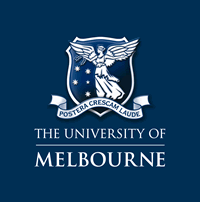About the Project
Applications are invited for a PhD student to join the Cardiac Phenomics laboratory at the University of Melbourne. Our University is ranked 9th in the world for pre-clinical biomedical research (Times Higher Education). Successful applicants will be a part of a dynamic team with a mission to understand how the heart response to stress can be managed to minimize damage under various disease conditions. Our preclinical work, as our name suggests, looks at how the cardiac genome (genetically defined heart) is translated in different stressor situations to create the phenome (the structurally and functionally defined heart). The successful candidate will be expected to present their work at national and international conferences, and participate in collaborations with major national and international partners and local Universities/Institutes.
See our relevant publications here: https://www.ncbi.nlm.nih.gov/pubmed/?term=delbridge+lm
This project is in the field of cardiac physiology, focusing on diastolic function and molecular signaling. Among the growing number of patients with heart failure, as many as half have heart failure with preserved ejection fraction (HFpEF). In this condition the signature symptoms relate to relaxation abnormality in diastole, which limit the cardiac output due to compromised ventricular filling. This project will utilise our unique experimental models of HFpEF to investigate the underlying molecular changes that occur with HFpEF and aims to identify therapeutic targets for this disease. We work with clinical partners in developing specialized imaging methods to benchmark laboratory derived measures of diastolic dysfunction against patient characteristics
Specific areas of research:
- Diastolic function
- Cardiomyocyte mechanics and stiffness
- Calcium cycling
- Myofilament structure and function
If successful, you will join an active research group that utilizes state of the art techniques to investigate the cellular components of diastolic heart failure. Some of these techniques include
- Echocardiography
- Single cell stiffness and calcium imaging
- working heart perfusions
- Biochemical assays
- mass spectrometry
- gene therapy in vivo and in vitro
Please see our lab website for more information about our research: https://biomedicalsciences.unimelb.edu.au/sbs-research-groups/physiology/cardiac-phenomics
Fees: If you are a new international PhD student the annual 2019 tuition fee is AUD$45,440 per annum. Fee paying positions are not available for domestic students. A Student services fee of AUD$308 per annum applied for domestic students. Scholarships to cover fees and living costs are available for competitive candidates. Please see the links in the funding section.
In brief the entry requirements to undertake a PhD at the University of Melbourne are a minimum weighted average mark (WAM) of 80% or an equivalent(e.g. approx. GPA equivalent of 3.5 of a scale of 4). In addition applicants must have completed a bachelors degree with first class honours, or a masters degree in Biomedical science, Physiology or related subject. You must have completed a substantial research project, dissertation or thesis, at university level.
Please see the following links for further information:
https://study.unimelb.edu.au/find/courses/graduate/doctor-of-philosophy-medicine-dentistry-and-health-sciences/
https://study.unimelb.edu.au/find/courses/graduate/doctor-of-philosophy-medicine-dentistry-and-health-sciences/entry-requirements/
Self funding students who have been successful in obtaining support are encouraged to apply.
For University of Melbourne, the standard scholarship application deadline for Semester 1 2020 is 31st October 2019. Late applications may be accepted for second round offers, and periodic calls for project strategic scholarship funding may also arise.
Funding Notes
A number of scholarships are available to provide support to cover fees and living costs. The scholarships are highly competitive, and you will typically need a minimum average of 80% to be eligible for a University of Melbourne Graduate Research Scholarship. We highly recommend that you calculate your weighted average mark before applying. https://ask.unimelb.edu.au/app/answers/detail/a_id/6033
For more details on scholarships and eligibility to apply please see the links below:
Scholarships: https://scholarships.unimelb.edu.au/
Domestic Eligibility: https://study.unimelb.edu.au/how-to-apply/graduate-research/domestic-applications/entry-requirements
International Eligibility: https://study.unimelb.edu.au/how-to-apply/graduate-research/international-applications/entry-requirements
References
Curl CL, Danes VR, Bell JR, Raaijmakers AJA, Ip WTK, Chandramouli C, Harding TW, Porrello ER, Erickson JR, Charchar FJ, Kompa AR, Edgley AJ, Crossman DJ, Soeller C, Mellor KM, Kalman JM, Harrap SB, Delbridge LMD. (2018) Cardiomyocyte Functional Etiology in Heart Failure With Preserved Ejection Fraction Is Distinctive-A New Preclinical Model. J Am Heart Assoc. 1;7(11). pii: e007451
Chandramouli C, Reichelt ME, Curl CL, Varma U, Bienvenu LA, Koutsifeli P, Raaijmakers AJA, De Blasio MJ, Qin CX, Jenkins AJ, Ritchie RH, Mellor KM, Delbridge LMD. (2018) Diastolic dysfunction is more apparent in STZ-induced diabetic female mice, despite less pronounced hyperglycemia. Sci Rep. 5;8(1):2346. doi: 10.1038/s41598-018-20703-8.
Bell JR, Curl CL, Harding TW, Vila Petroff M, Harrap SB, Delbridge LMD. (2016) Male and female hypertrophic rat cardiac myocyte functional responses to ischemic stress and β-adrenergic challenge are different. Biol Sex Differ. 2016 Jul 7;7:32

 Continue with Facebook
Continue with Facebook

